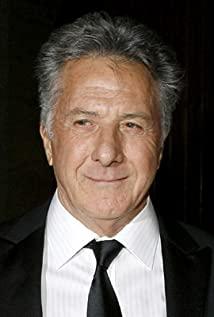In "Perfume", for Grenouille, his cognition was born out of the system of any social community - the illegitimate son of a female fishmonger from the bottom of Paris society, who never received any education, but relies on Unparalleled olfactory genius to know the world. His name for the new knowledge of the world is entirely based on smell - smelling grass dew, he knows it is "green" - he is almost forced to acquire language through smell, and when the language system is completely unable to express When he recognizes taste, each taste itself becomes a carrier of speech. Taste is Grenouille's own unique symbol system for the world. "He smells more accurately than some people see, because he observes it after the fact, and thus in a higher form, as if seeing the essence and essence of something that has passed, without being affected by the ordinary properties of the present disturbed, because the latter, apart from the clamor and strife, is the disgusting huddle of living flesh.”
Grenouille believes that smell is the essence of the soul. Each individual has its own unique taste. He can distinguish things that are indistinguishable in the eyes of the world by smell, and the same is true of people's understanding. name, but smells different. Rude men are shy, greedy bosses are astringent, fat women are salty and greasy, and girls are scented. He began to collect these scents, and through a method of extraction and refinement called oil separation, he permanently possessed the scent of these girls. It's not that he doesn't pity the girls who died at his hands, he just thinks that they can exist in a better way, that is, bottles with essential oils extracted from their hair and flesh, bottles that carry their scent .
Crime masters are often geniuses. Although the murders committed by Grenouille have spread fear in the city, he never misses. Whenever he hides in his attic, he can indulge in those wonderful aromas. See heaven and hear music from these scents. It's all like a dream, knowing that the nightmare about the sweet girl he killed has appeared, and that nightmare has made him realize in horror that there is something more important than knowing the world - knowing yourself. In the dream, he followed the girl who smelled of young yellow and sweet apricots across the left bank and through the alley. Suddenly, the girl turned and turned around. He wanted to avoid him, but now he found that the girl couldn't "see" him at all. He suddenly realizes that he himself has no smell - for a genius who identifies the world with smell, no smell means he does not exist, and Grenouille's system of meaning is completely disintegrated.
So far, the whole film has turned into Grenouille's quest to establish himself - he tries to create the scent of himself by plundering and blending the scent of others, and his ultimate goal is to make a bottle that tastes "self" perfume. He set out to find beautiful girls with strange scents, killed them, and distilled their scents. There are some moving details in the film: in the course of Grenouille's life, everyone associated with him will die after he leaves, which is exactly what Grenouille's subject lacks - no one can confirm His existence, in addition to his own self-affirmation.
"Self" cannot be established alone, but is a product of social relations. Grenouille murdered the girls and robbed them of their taste. It was nothing more than a subject without existence consciousness, a subject in a state of shattered nothingness, plundering the existence of the other, accumulating the existence of the self through the disappearance of the other. In the process of killing young girls, Grenouille's heart is almost pious - he thinks that he is only plundering the non-self as the object of conquest, thereby establishing the cognitive subject of the existence of the self. But I have to admit that, as an executioner at this moment, in the process of establishing himself as an executioner, the experience of killing itself also brings a kind of carnival caused by "transgression" behavior, which is a kind of carnival. The pleasure of being suspended by conventional limits.
Grenouille's mind without "ego" has only the real world at the bottom, which is a primitive chaos of the id, which the subject cannot perceive, nor can it be spoken--once spoken, it has entered the imagination realm or symbolic realm. Intervening in Grenouille's real world with the help of the symbol of smell, it can be found that at this moment, his perception/hedonic mode has changed - the desire impulse of cognitive objects has been transformed into the desire to possess and plunder cognitive objects, to establish the identity of self-existence. This desire to gain self-awareness begins with the recognition of others, and for Grenouille, it is the desire to "see" herself. Hegel once said that there can be no self-consciousness without desire and want, but desire alone cannot consolidate a sense of individual independence. Only when individual desires no longer point to a substance, but to another subject, can he be recognized from the interaction between the two parties and gain the knowledge that he is a person, not a thing. "The self is the product of others", this Hegelian assertion pushed to the extreme by Lacan, is most vividly verified in Grenouille - Grenouille's existence depends on the approval of others, and his self-consciousness becomes desire The desire of the other, which makes him fall into the irrational dark power of an unconscious subject, endlessly plundering the scent of girls, is fueled by a desire to make the most unstoppable perfume in the world. , Grenouille himself is to be the sojourner of this great fragrance. Desire originates from scarcity and lack of taste, Grenouille not only seeks the scent that establishes himself, but also desires to be the subject of the most beautiful, omnipotent, and subversive scent in the world under his inflated ambition.
Grenouille succeeded, and on the eve of his arrest by the gendarmerie, he finally produced this incomparable perfume, which he knocked over before his execution. The unstoppable power of this scent culminates in the ending, which engulfs the entire population who had gritted their teeth to watch Grenouille's execution be swept away by a feeling of intense admiration, tenderness, almost utterly childish love, up to and including The Duke of Huagaijuma, down to the civilians of Golanwa City, all fell to the ground and worshipped Grenouille irresistibly.
This worship is a worship of the captivating fragrance that Grenouille represents. The great scent that dominates everyone's self-consciousness seems to be a deep structure that precedes, exceeds, and determines one's thinking and behavior, a (perhaps not to be article) interpreted by Lacan as some kind of abstraction. Big Other. Grenouille's behavior begins with the urge to let others recognize the self and seek the confirmation of the subject, and finally transmutes into a speech symbol of the big Other.
Perfume is here, also because the subject becomes a prisoner of the desire of others, the soul goes out of the body, and it expands into an ineffable force that overwhelms God and traverses the laws of the world.
View more about Perfume: The Story of a Murderer reviews











